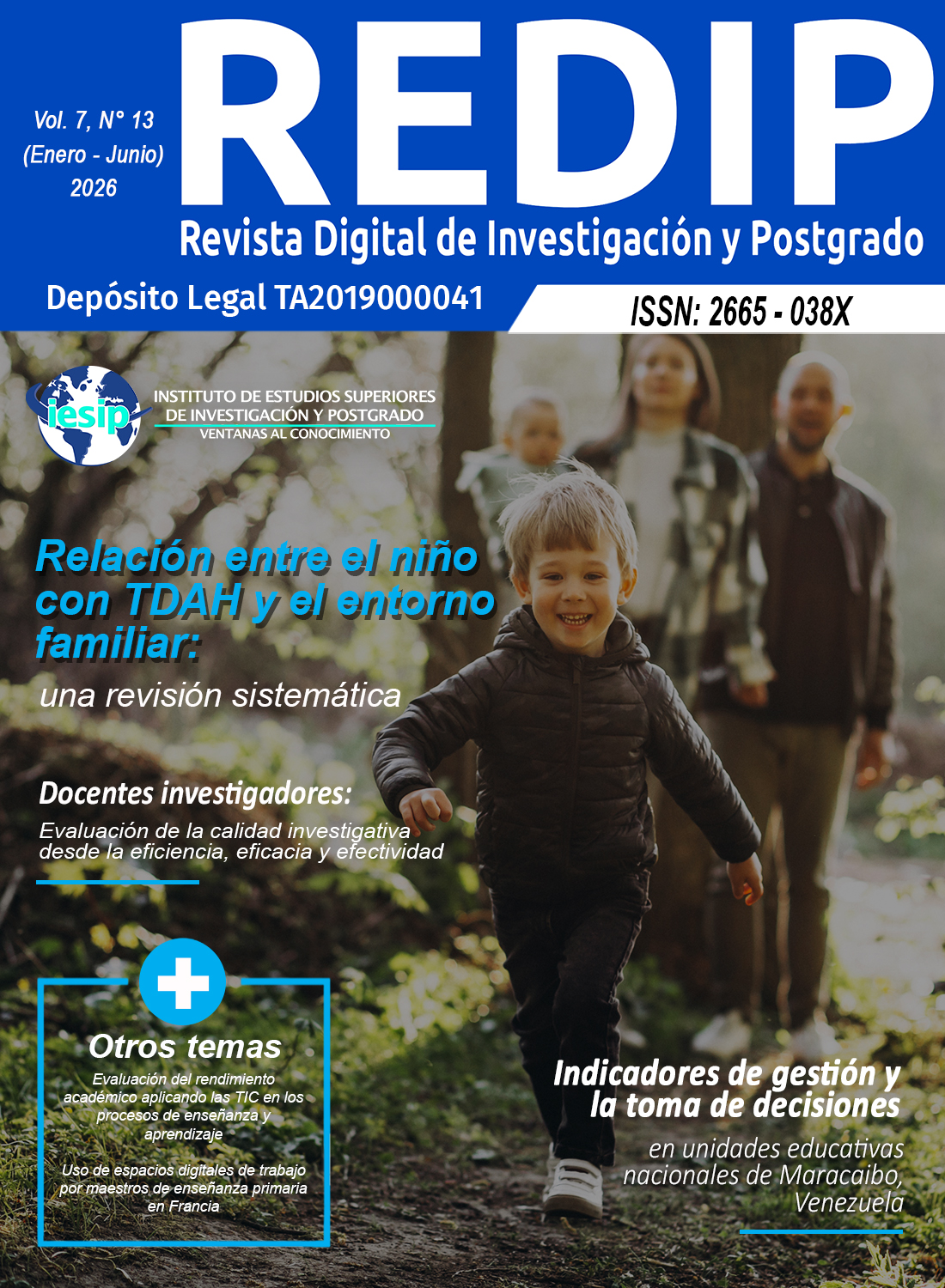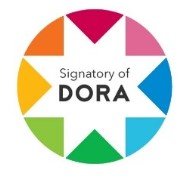Sobre la revista
El objetivo de REDIP es difundir investigaciones, ensayos, artículos científicos y experiencias innovadoras realizadas por estudiantes de postgrado en temas de ciencias sociales, educación y epistemología. La finalidad de la revista es comunicar información científica a sus lectores.
REDIP está indexada en Bases de Datos Internacionales Selectivas, Plataformas de Evaluación de Revistas, Directorios Selectivos, Hemerotecas Selectivas, Políticas de Copyright de las Editoriales y Autoarchivo. Además, nuestra revista forma parte de múltiples Catálogos de Bibliotecas Internacionales. La revista también es signataria de la Declaración de San Francisco DORA, la Iniciativa de Acceso Abierto de Budapest BOAI y la Declaración de Educación Abierta de Ciudad del Cabo CPT+10. Además, REDIP tiene presencia en redes sociales como LinkedIn, Instagram y Facebook.
La revista opera bajo una licencia de Creative Commons Reconocimiento-NoComercial 4.0 Internacional; cualquier obra derivada deberá publicarse y distribuirse bajo la misma licencia de acceso abierto CC-BY-NC-SA que se otorga en la publicación original. El número de Depósito Legal TA2019000041 fue asignado el 4 de septiembre de 2019 por el Instituto Autónomo Biblioteca Nacional y de Servicios de Bibliotecas en Venezuela, en uso de la atribución legal contenida en el Artículo 14° de la Ley de Depósito Legal, en concordancia con los Artículos 31° y 41° del Reglamento de la citada Ley. El ISSN fue asignado por el Instituto Autónomo Biblioteca Nacional y de Servicios de Bibliotecas en Venezuela.
El acceso a REDIP se puede realizar desde los siguientes enlace
URL: redip.iesip.edu...
Google: www.google.com/...
Bing: www.bing.com/se...
Yahoo: search.yahoo.com.
Número actual

Este número aborda la educación contemporánea desde múltiples perspectivas entrelazadas. Comienza observando cómo se integra la tecnología en las aulas y cómo esta convive con el bienestar emocional de los estudiantes y sus dinámicas familiares. Luego, examina la efectividad concreta de estas herramientas digitales y el tipo de liderazgo necesario para gestionar escuelas en entornos complejos.
La mirada se amplía hacia la calidad de la investigación que sustenta la práctica educativa y hacia las nuevas habilidades críticas que exige la inteligencia artificial. Sin perder de vista la realidad, se confrontan estos avances con el desafío permanente de la inclusión y el acceso equitativo a la educación. Finalmente, una reflexión filosófica sobre el conocimiento invita a entender esta pluralidad no como fragmentación, sino como un diálogo necesario para transitar la complejidad inherente al panorama educativo actual, subrayando que el progreso técnico y la gestión deben estar siempre al servicio del desarrollo humano y la justicia social.
Número completo
Editorial
Artículos de Investigación
Instituto de Estudios Superiores de Investigación y Postgrado










